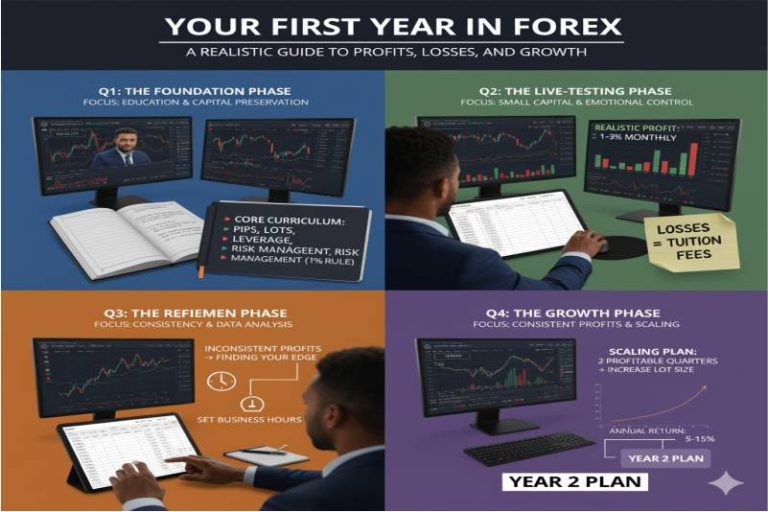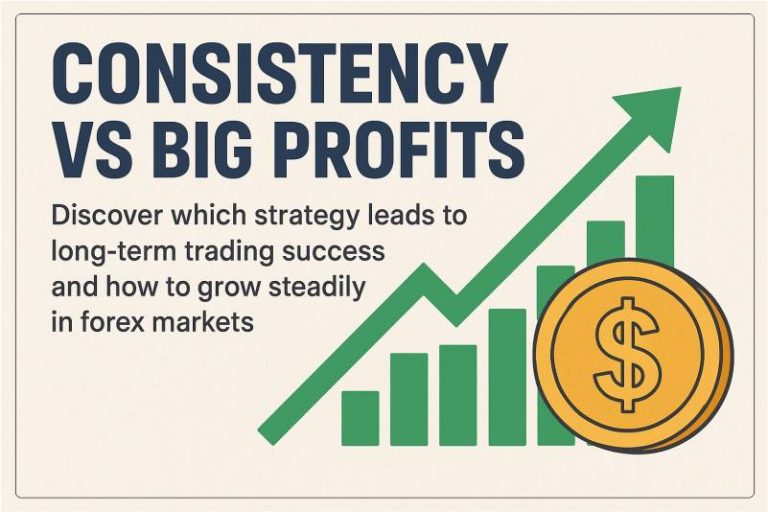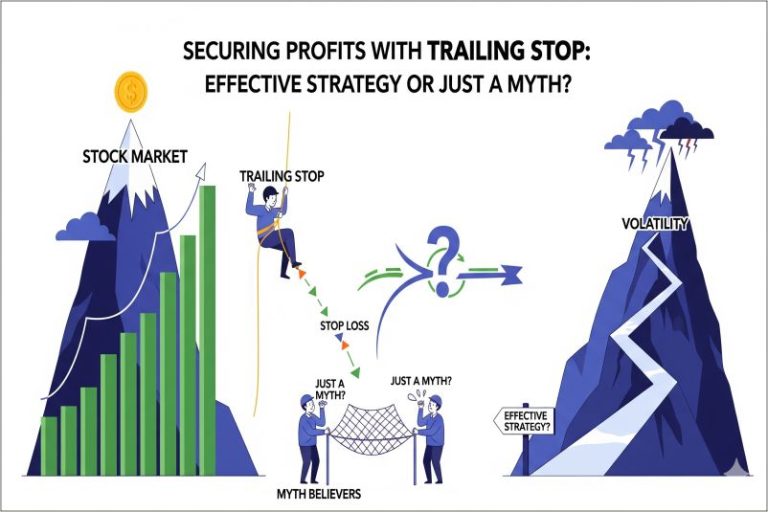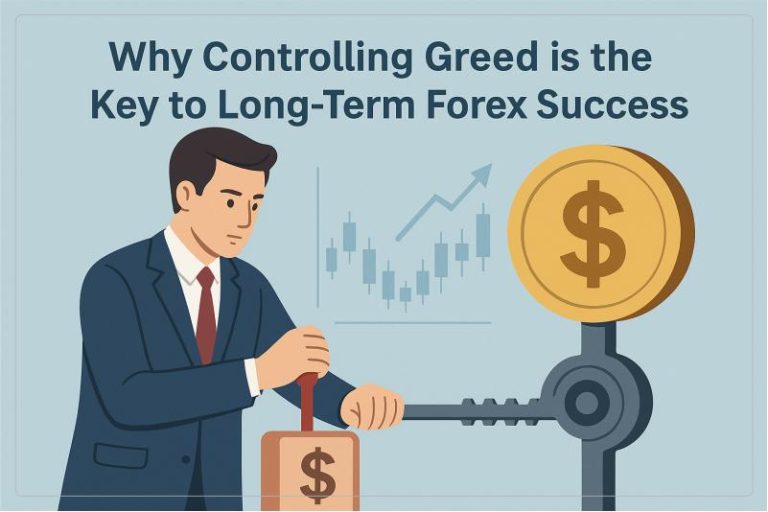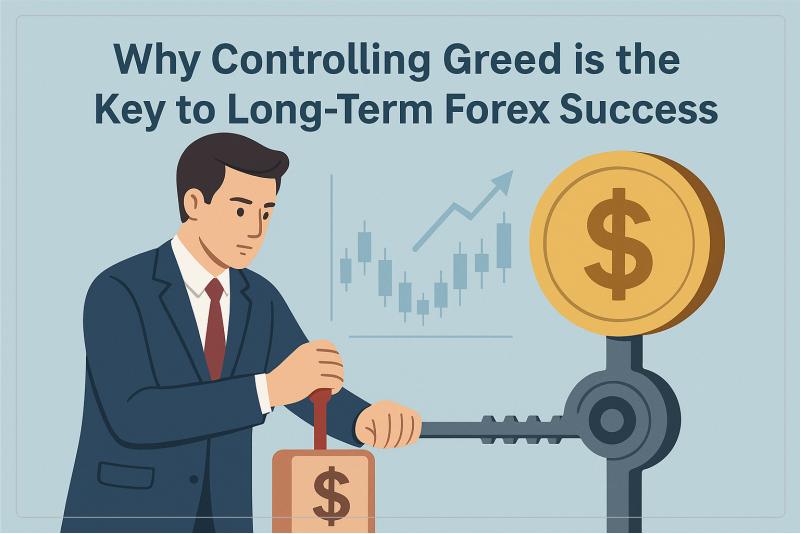
Greed is one of the most common psychological pitfalls in forex trading. For many traders, it begins subtly—a desire to gain a little more profit, a thought that the market will keep going in my favor. But as every experienced trader knows, unchecked greed often leads to reckless decisions, oversized positions, and ultimately, painful losses.
In this article, we’ll dive into why controlling greed forex is critical for your long-term success, explore the psychology behind it, and share practical strategies to master your emotions and stay disciplined in trading.
Understanding Greed in Forex Trading
Greed in forex trading is the insatiable desire to gain more profits, often at the expense of rational decision-making. Instead of following a well-defined trading plan, traders influenced by greed may:
- Enter positions too large for their account size
- Overtrade without a clear signal
- Refuse to take profits, waiting for the “perfect” exit
- Chase the market after missing an entry point
At its core, greed is not about ambition—it’s about lack of discipline. While ambition pushes you to improve, greed clouds your judgment and blinds you to risks.
Why Controlling Greed in Forex is Essential
1. Protects Your Capital
The number one rule in trading is to protect your capital. Greed tempts traders into risking more than they can afford to lose. Without capital, there is no trading future.
2. Ensures Consistency
Forex success is not about one big winning trade—it’s about a series of small, consistent gains. By controlling greed, traders focus on steady growth instead of chasing unrealistic profits.
3. Reduces Emotional Stress
Greed creates unnecessary emotional pressure. You’re constantly worried about missing out or losing profits. By trading with discipline, you reduce stress and make clearer decisions.
4. Supports Long-Term Strategy
Successful traders view forex as a marathon, not a sprint. Greed leads to impulsive trades that may pay off once, but eventually destroy your account. Controlling greed helps you stick to long-term goals.
The Psychology Behind Greed in Forex
To control greed, you first need to understand its root causes. In forex trading, greed often stems from:
- Fear of Missing Out (FOMO): Seeing others profit and wanting to jump in late.
- Overconfidence: After a winning streak, traders feel invincible and increase risk.
- Impatience: Wanting quick results instead of trusting the process.
- Ego: Refusing to accept small profits, always wanting “just a bit more.”
Recognizing these triggers is the first step toward overcoming them.
Practical Strategies for Controlling Greed Forex
Now that we know why greed is dangerous, let’s explore how to control it effectively.
1. Stick to a Trading Plan
A trading plan outlines when to enter, exit, and manage trades. By following it strictly, you eliminate emotional decision-making. If your plan says to close at 50 pips profit, do it—don’t wait for 100 pips out of greed.
2. Set Realistic Profit Targets
Avoid aiming for “home run” trades every time. Instead, set achievable goals based on market conditions and your strategy. Small, consistent profits compound over time.
3. Use Proper Risk Management
Control your position size. Risking only 1–2% of your account per trade helps prevent devastating losses caused by greedy over-leverage.
4. Accept That You Can’t Catch Every Move
Markets will always move beyond your target sometimes. Accept that leaving money on the table is part of trading. Trying to catch every pip is driven by greed.
5. Take Breaks and Reflect
If you feel greed taking over—such as overtrading after a big win—step away from the screen. Reflection helps reset your mindset.
6. Keep a Trading Journal
Document your trades and emotions. Over time, you’ll spot patterns of when greed influences your decisions. Awareness is a powerful tool for change.
7. Practice Patience
Greed thrives on impatience. Remind yourself: “Opportunities will always come. My job is to wait for the right ones”.
Examples of Greed in Forex and Their Consequences
The “Double or Nothing” Trap
A trader doubles their lot size after a win, thinking they can multiply profits. One wrong move wipes out weeks of gains.
Ignoring the Stop-Loss
Instead of respecting a stop-loss, a greedy trader widens it, hoping the market will turn around. It usually doesn’t—and the loss grows bigger.
Overtrading During News Releases
High-impact news events create volatility. Greedy traders chase the moves, often entering too late and getting stopped out repeatedly.
Each of these examples shows how greed overrides discipline and ends in losses.
Long-Term Benefits of Controlling Greed in Forex
When you successfully manage greed, you gain:
- Consistency: Small wins accumulate into long-term growth.
- Confidence: Trusting your strategy builds self-assurance without overconfidence.
- Sustainability: You protect your capital and stay in the game longer.
- Peace of Mind: Less stress and emotional turmoil mean you can trade with clarity.
In short, controlling greed isn’t just about avoiding losses—it’s about building a foundation for long-term forex success.
Final Thoughts
Greed is one of the toughest challenges in forex trading, even for seasoned professionals. The difference between a struggling trader and a successful one often lies not in technical skills, but in emotional discipline.
By learning the art of controlling greed forex, you can trade smarter, protect your capital, and focus on steady growth rather than chasing risky profits. Remember: in forex, slow and steady truly wins the race.
